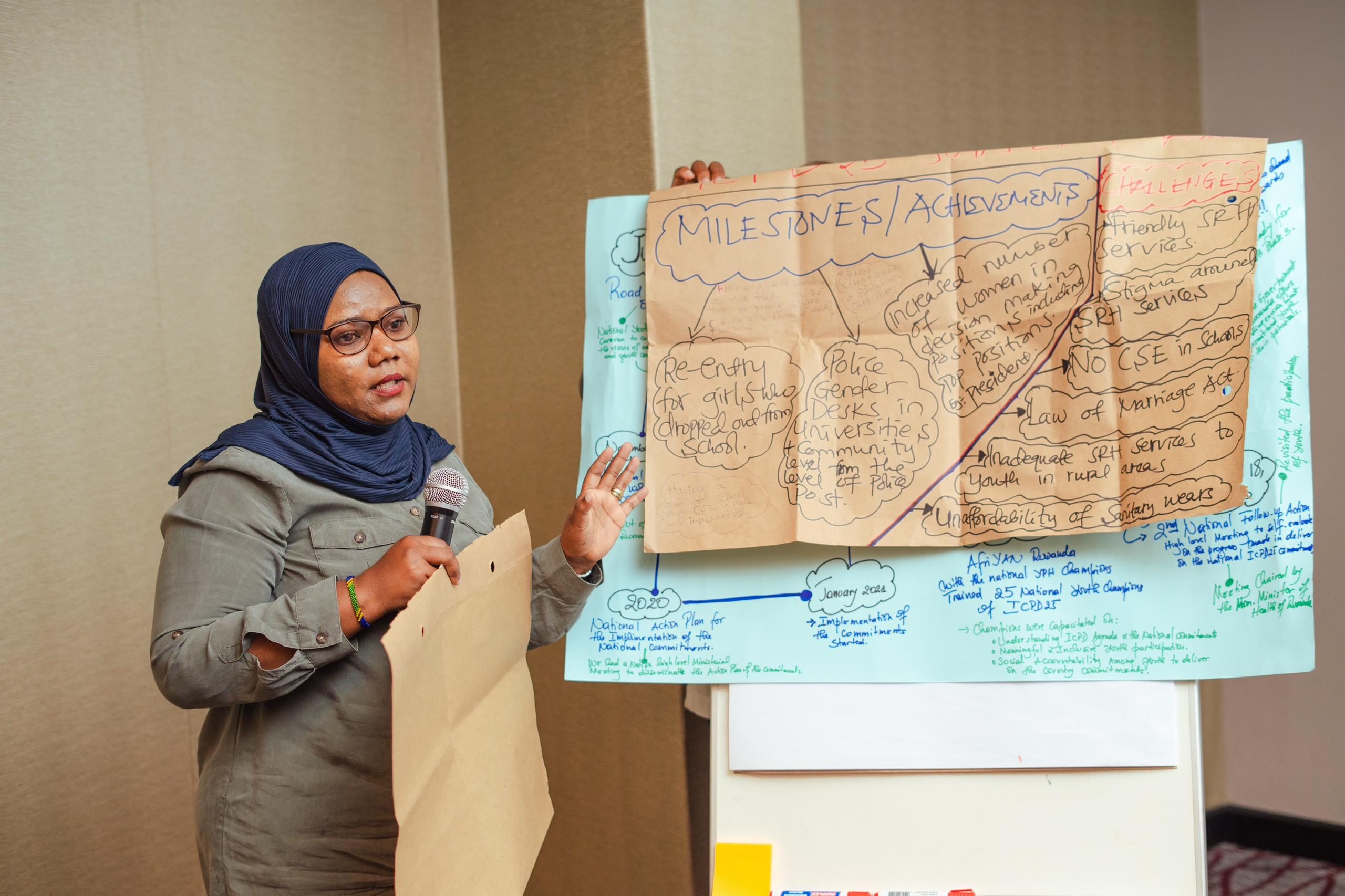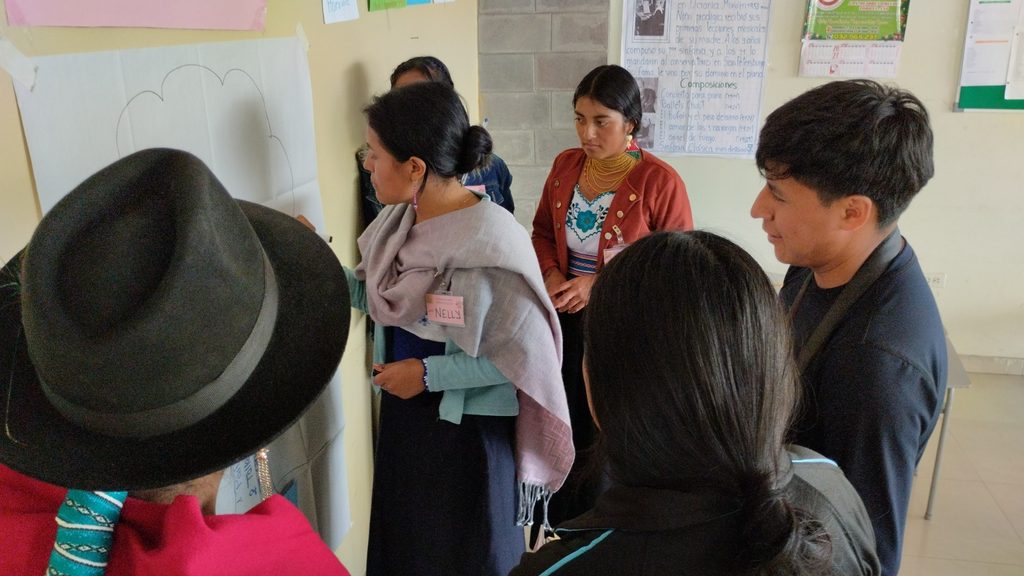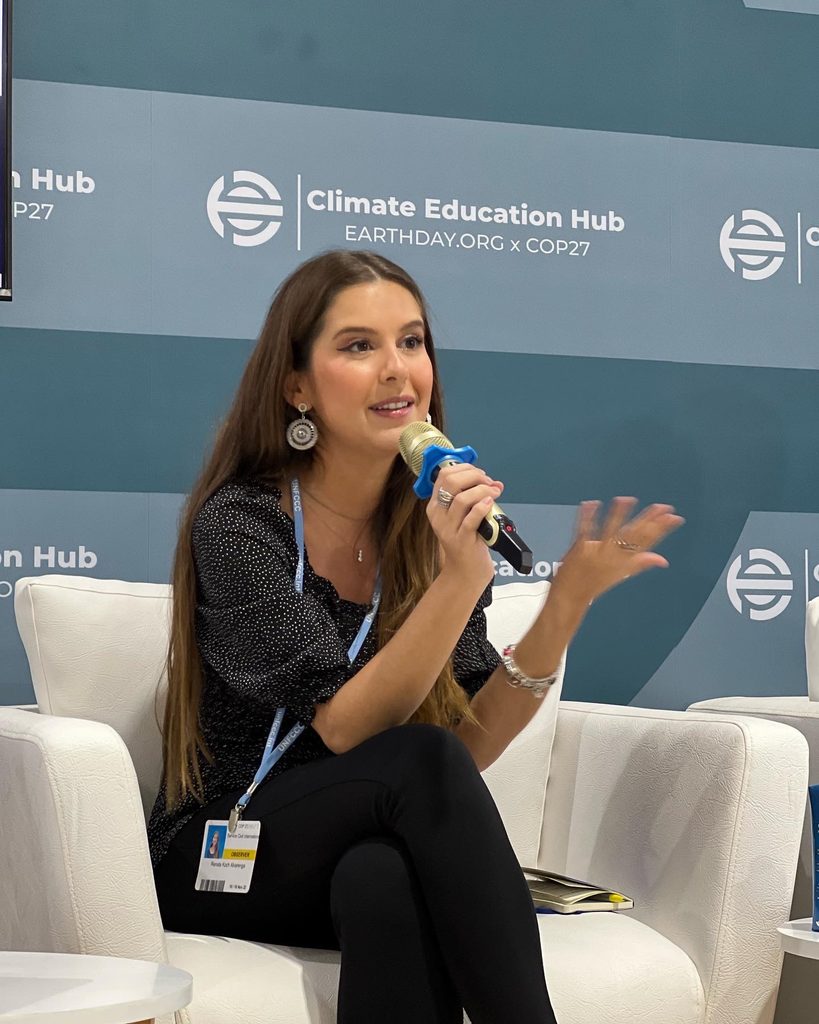Youth leaders call for gender equality and education at COP28
4 December 2023Three youth advocates give their perspective on climate action, gender equality and education; and their hopes for COP28.
As COP28, 2023’s climate summit, begins at the close of the hottest year on record, the urgency around climate action is once more in the headlines. Less discussed are the intersectionality of gender equality, climate justice and education, and the disproportionate impact of the climate crisis on children and youth. But this needs to be front and center.
In a special session held at RewirED Summit at COP28 UAE, gender equality and climate advocates shine a light on this critical element of climate action. They discussed how gender transformative education – which means comprehensive and inclusive gender equality education that challenges and transforms harmful gender norms – can be a crucial tool for enabling solutions that mitigate climate change. We spoke to the three youth experts on the panel to find out more:
“Education is not only about acquiring knowledge but also about fostering economic independence and ensuring good health, which are essential components of sustainable development.”
Salha, Executive Director for Binti Salha Foundation and GPE Youth Leader, Tanzania
“As an indigenous woman, I have seen the consequences of climate change situations in my community, and most of them affect girls and young women.”
Nelly, Puruha leader of the Because I Am A Girl Movement in Guamote Ecuador
“What motivates me to call gender-transformative climate change education is seeing the power of educating girls in solving the climate crisis.”
Renata, Founder & Executive Director of EmpoderaClima, Brazil
How is the climate crisis unfolding in your country, and how has that informed your activism?
Salha: Women and men often experience climate change impacts differently due to existing gender inequalities. In Tanzania, women and girls have experienced the impact of climate change on their health, education, and economic activity. In my work, I engage with a lot of girls and young women who face challenges attending school when menstruating. With increasing droughts making access to water even more scarce, they experience poor menstrual hygiene and can miss 3 to 7 days of school per month as a result. My advocacy on gender-transformative climate change education is driven by my deep commitment to empowering adolescent girls and young women and my passion for education.

Nelly: As an indigenous woman, I have seen the consequences of climate change situations in my community, and most of them affect girls and young women. Today, the changing climate of my country, which goes from low temperatures to high temperatures in small periods of time, has caused the loss of agricultural production, decreasing the economy of families, and forcing them to live in precarious conditions to provide education to their sons and daughters, or in most cases has forced them to withdraw their children from schools, depriving them of their right to education. So for me, advocating for climate curriculums in schools that center on gender equality, as well as education policies that highlight the intersection between gender and climate justice, are key in spaces like COP.

Renata: I am a gender and climate advocate from Brazil, focusing on youth leadership in Latin America and the Caribbean. I founded the organisation EmpoderaClima when I was 22, to raise awareness of the need for women’s empowerment in climate decision-making spaces, and advocate for girls’ education and climate action in the Global South. Studies show that nations with higher rates of women as climate leaders and that have more access to education for girls, have less vulnerability to climate disasters. This is because education provides crucial skills, including critical thinking, problem-solving, negotiation and communication. Such tools can make a big difference when it comes to building climate resilience amid a situation of disasters.
Why is gender equality in and through education such an important tool to address climate injustice and climate change?

EmpoderaClima, Brazil.
Renata: In 2021, climate change impacts prevented four million girls from completing their education. If current trends continue, by 2025 climate change will be a contributing factor in preventing at least 12.5 million girls from completing their education each year. When young women and girls are in the classroom, they can develop agency to make sound decisions about their own lives. If every girl could exercise her sexual and reproductive health and rights through quality education, total emissions from fossil fuels could be reduced by about 40% by the end of this century. Thus, there is enough data and motivation to implement climate education policies at COP28 that focus on gender equality, and it is about time that the UN Climate Negotiations prioritise this agenda.
Salha: Education is powerful. It increases community problem solving, and raises awareness of the effects of climate change and how everyone can act to ensure a smart, safe and just world. It can also break down the cultural norms and traditional power structures that serve as barriers to youth leadership, especially for young women and empower them to hold their local communities and governments to account.
Nelly: I believe that education is key for empowerment, and it can bring so many more young people – especially young women and girls – to the climate space, whether as activists, engineers, policymakers, etc.
What are your key recommendations for decision makers around the world to advance climate justice and gender equality in and through education?
Salha:
- Incorporate gender-transformative climate change education into the core curriculum, expanding beyond climate science to include social/justice and political dimensions, sustainable development and human rights.
- Dedicate resources to ensure the availability of accessible, inclusive, and high-quality education for everyone, emphasising the need to overcome gender-based barriers to education.
Nelly:
- Ensure that the countries that contribute least to climate change and suffer most strongly from its effects have prevention and mitigation opportunities through policy making and resource mobilisation.
- Consider the opinions of girls, boys and young women when decisions around climate change are made, taking into account the realities they live daily
- Promote quality and inclusive education for girls, boys and young women in situations of ethnic, social, geographic and economic vulnerabilities. An education with safe and suitable environments to learn and put their knowledge into practice.
Renata:
- Ensure women are at the forefront of your climate [and] education policies, especially young women and marginalised groups with lived experiences in the climate crisis.
- Advocate for and implement a gender-transformative climate education, at all levels.
- Mainstream the agenda on sexual and reproductive health and rights.
According to these 3 youth advocates, gender equality in and through education is crucial to addressing the climate crisis and redressing the disproportionate effects of climate change on young people, and especially girls. Ensuring global commitments to gender equality and gender transformative education is key for climate justice.
Which recommendations resonate most with you? Share your thoughts on Twitter/X with the hashtags #GenderTransformativeEducation #RewirEDSummit #COP28UAE

